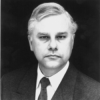Whitley Strieber

Whitley Strieber
Louis Whitley Strieberis an American writer best known for his horror novels The Wolfen and The Hunger and for Communion, a non-fiction account of his alleged experiences with non-human entities. He has maintained a dual career of author of fiction and advocate of alternative concepts through his best-selling non-fiction books, his Unknown Country website, and his internet podcast, Dreamland...
NationalityAmerican
ProfessionWriter
Date of Birth13 June 1945
CountryUnited States of America